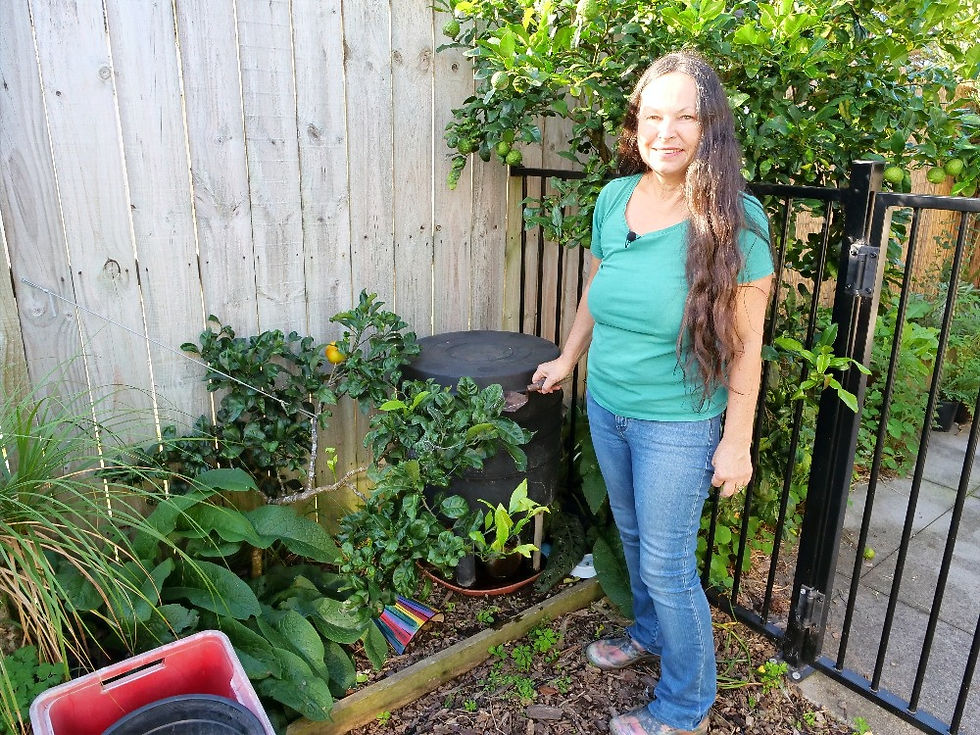5 Mistakes Beginners make when Growing Herbs
- Toni Kenyon

- Apr 20, 2021
- 3 min read

Growing from seed
As much as I love growing herbs from seed, sometimes they don't love me.
Starting any kind of plant in the garden from seed takes some skill. It's not quite as simple as throwing some seeds in a hole in the ground, adding water and waiting for your culinary delights to sprout.
Seeds require a specific set of circumstances to germinate and your back yard (or that plant pot on your window sill) might not be right.
If you're just starting out with your herb garden, do yourself a favour and pick up some starter plants from your local garden centre or hardware supply store.
You'll likely find that you'll pay a similar price for a good solid herb start that you would pay for those seeds and you'll be guaranteed that you've got a plant that will perform for you as long as you give it the right growing conditions.
Not growing what you'll use
Think about what you eat. There's not a lot of use purchasing a Salad Burnet (Sanguisorba minor) if you have no idea what it's used for or even if you're going to enjoy the taste. By the way, it tastes like a mild cucumber and the leaves look ever so pretty in a green salad.
So don't get over-confident too soon with your choice of herbs. Stick to the tried and tested and to those that you know you're going to pop out and pick and incorporate into your meals.
Check those labels
Did you know that there are over 600 varieties of mint? Every single one of them has a unique flavour and thus a unique use. Some can easily be interchanged in cooking, but you won't want to be putting pineapple mint with your lamb dish--it's better in a sweet desert. So read your labels carefully and make sure that you're purchasing the correct plant for your intended use.
Don't always rely on their common names either. All good herb suppliers will use the botanical name for the plant that you're purchasing. Because you are eating herbs, it's always important to ensure that you're correctly identifying the plant that you want to use.
Start with good soil
You wouldn't expect a pro athlete to run a race on junk food. Don't expect the same from your herb garden.
I'm a fan of organic, no-dig gardening and I work hard to make sure that my soil is in tip-top condition for my plants.
If you're just starting out, you can add compost to your garden and plant your herbs into the compost. Keep adding layers of organic material to your garden and the microbes will love you for it (as will your herb plants).
Herbs are pretty hardy and can grow just about anywhere, but they do need a little help--especially as you'll be harvesting them often.
Give your herbs a pep-up with a liquid fertiliser. Seaweed soaked in water (make sure you put on a lid!) is a great brew. But you can pretty much put anything green in water (weeds!) leave it to break down and then dilute it 1-10 with water and feed your herbs.
I love leaving my weeds to dry out in a pile and then using them like straw as a top dressing on the garden beds.
Prevent Invasions
I'm looking at you mint & oregano!
These two grow so well that they'll take over the entire herb bed if given a chance.
You can put them in pots and bury the pots in the garden (but still watch for those sneaky, snaking suckers!) or you can plant them where you don't mind them rambling and taking over. Under fruit trees is good (especially if you've got a few chickens who can scratch and keep them in check).
So there you go! Five things to think about when you're establishing your herb garden. I can assure you that in the years I've been growing herbs I've made every single one of these mistakes.
Ask my sons about the indestructible mint that kept growing around the back of the house, or the number of cherished herbs I've lost to rampant oregano. There's also the multitude of herbs that grow in the garden that we'll probably never use, but they're still there and we and the birds and the bees get to enjoy their beauty anyway.

Pick up my free download and learn about 4 herbs you can include in your own kitchen herb garden.
Just fill in your email address below and click the button and you're all set.
Don't forget to email me (use the 'contact' page) and let me know how your herb garden is growing, or let me know what else you'd like to learn about herbs.







Comments